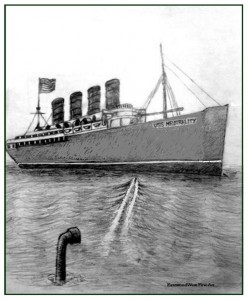The Prime Minister Primer
Posted in General, On This Day on May 7th, 2010 by Eugene Finerman – 6 CommentsI. Party Labels and Libels
God, at least the English speaking one, must believe in a two-party system. So, in the political Genesis of late 17th century, one party was a gang of curmudgeons who hated Catholics, distrusted kings and liked business. They were known by their opponents as the Whigs, a Scottish term for bumpkin. The other party was a pack of squires who loved themselves–frequently to the point of syphilis, revered hunting, hangovers and the monarchy, and considered religion merely a matter of etiquette. They were known by their rivals as the Tories, an Irish term for robber. For some reason, both factions accepted these libels as their formal names.
Bumpkins or robbers: it wasn’t much of a choice for the English voter but then there weren’t many English voters either. The franchise–with its convoluted medieval property requirements–was largely limited to the candidates themselves and their male relatives. In a contested borough, the candidate with the most dependable sons-in-law won. Even after the first electoral reform bill of 1832 created a lower and more uniform property requirement–only one in six men was eligible to vote.
Nonetheless, with this somewhat enlarged franchise, the two political parties reconciled themselves to change–particularly their names. Whig and Tory sounded too much like private clubs. The usually hidebound Tories took the initiative by test-marketing the name Conservative. In 1834 Prime Minister Robert Peel started alluding to his Conservative philosophy, Conservative program, Conservative administration, etc. But many Tories were not thrilled with the new name–or with Robert Peel for that matter. It took about 25 years before the party was officially renamed the Conservatives. Of course, in response to the ballyhooed “new and improved” Conservatives, the Whigs now chose a more coherent and preferably accurate name: the Liberals. And so, throughout the 19th century, these two parties remained the either-or of British politics.
The British franchise was gradually expanding and by 1900 it encompassed most British males. Of course, the workin’ man had nay fondness for the Tories, but he also felt little affinity with the middle-class Liberals. Some labor unions decided to form a political party–and since British politics somehow can’t maintain more than two viable parties at a time, it wasn’t good news for the Liberals.
II. Who’s Who
My idea of casual conversation would include an allusion to Benjamin Disraeli. My acquaintance’s idea of a response was “Who?” I hoped that I maintained a stoic mien but my eyebrows might have been doing the semaphores of “How can you be so stupid?” The lady, a friend of a neighbor, is Gentile; so she would have been indifferent to the most interesting feature of Disraeli. I just provided her with a brief description of a “British prime minister of the 19th century and a man of extraordinary charm and wit.”
Now, I don’t want to seem like a pedantic bully (even if I really am) but I think that a middle-aged college graduate should have heard of Benjamin Disraeli. He is not obscure. It is not as if I had belabored the poor woman with such prime ministerial ciphers as Henry Campbell-Bannerman or James Callahan. (And if I had mentioned Andrew Bonar Law, she might have slapped me.)
I realized that Americans’ criterion for historical significance is whether or not it was made into a movie. But Disraeli has been, and he has been portrayed by George Arliss, John Gielgud, Alec Guinness and Ian McShane. Given Disraeli’s origins, Adam Sandler or Ben Stiller may feel entitled to play him! No, that woman should have heard of Disraeli.
In fact, I think that a number of British prime ministers merit at least a minimum of recognition.
Robert Walpole (1721-1741), a $2,000 question on Jeopardy but he was the first prime minister.
Lord North (1770-1782), the idiot during the American Revolution.
William Pitt the Younger (1783-1801, 1804-1806) if only because Pittsburgh was named for his father.
Earl Grey (1830-1834) because he had such great taste in tea. Yes, really.
Benjamin Disraeli (1868, 1874-1880): He needs no introduction.
William Gladstone (1868-1874, 1880-1885, 1886, 1892-1894): Disraeli’s rival. If Disraeli was Groucho, Gladstone was Margaret Dumont.
David Lloyd George (1916-1922) in case you were wondering who was standing next to Woodrow Wilson at Versailles.
Neville Chamberlain (1937-1940) who is now remembered as an insult and an accusation.
Winston Churchill (1940-45, 1951-1955), the man George Bush claimed to be–give or take the eloquence.
Margaret Thatcher (1979-1990): Disraeli’s politics with Gladstone’s charm.
Tony Blair (1997-2007) if only to prove that you were not completely oblivious.
Boris Johnson…oh maybe not.
